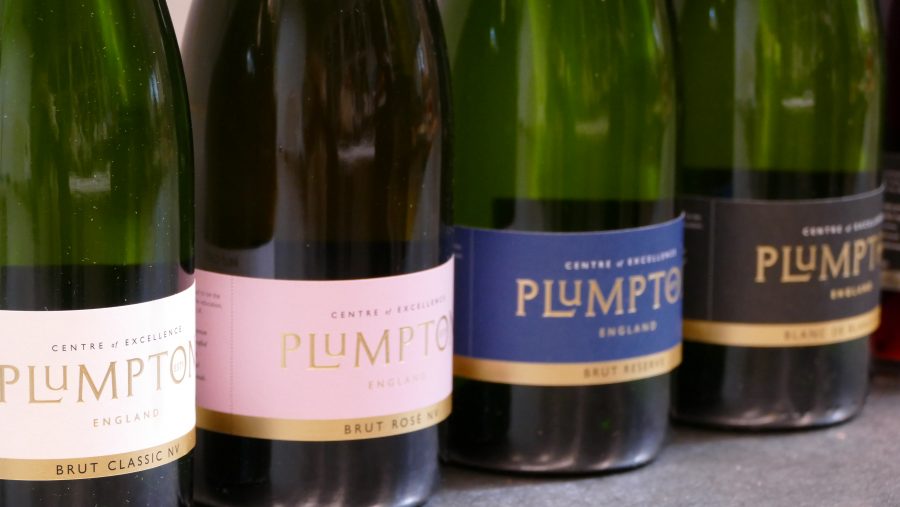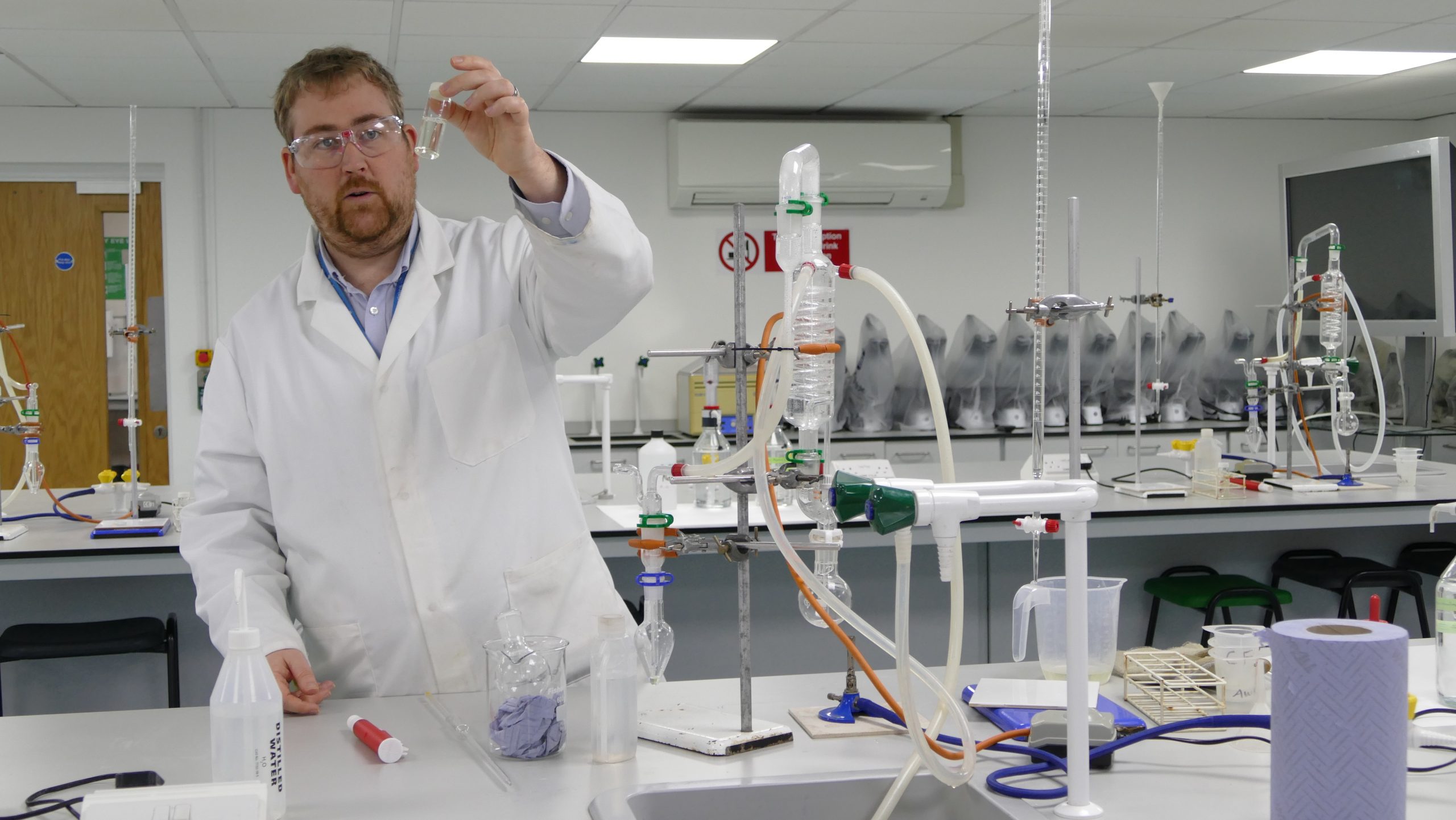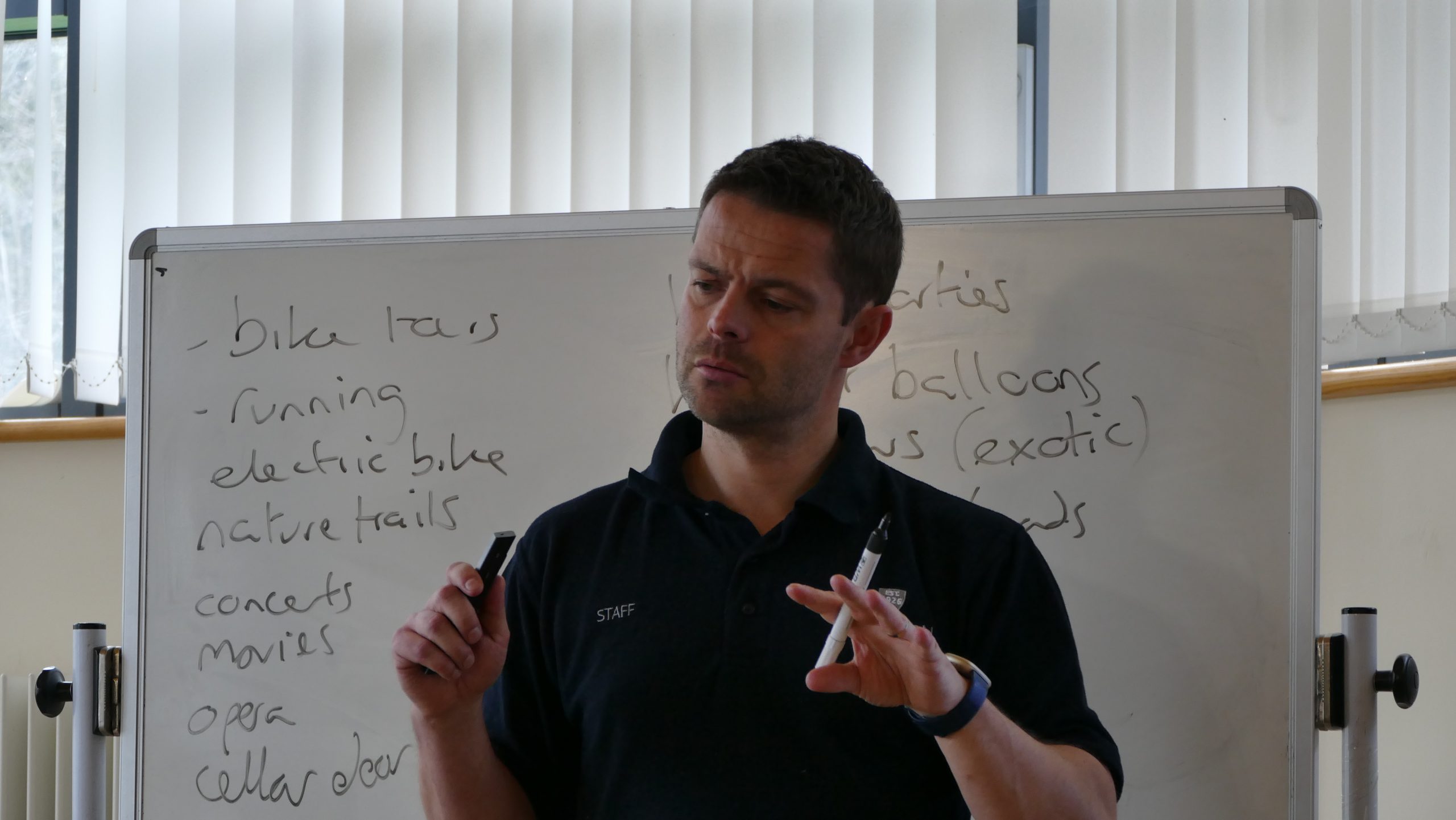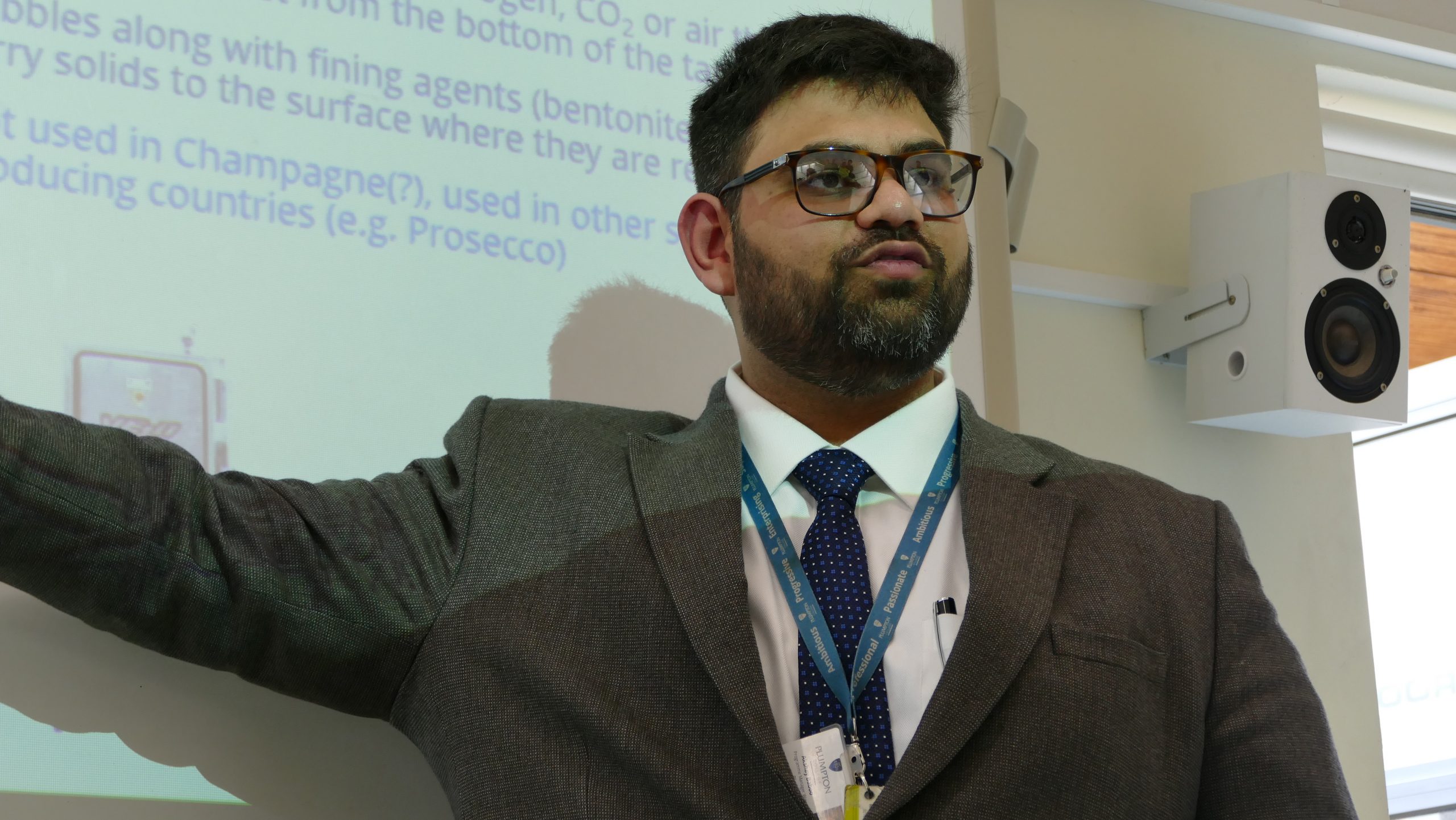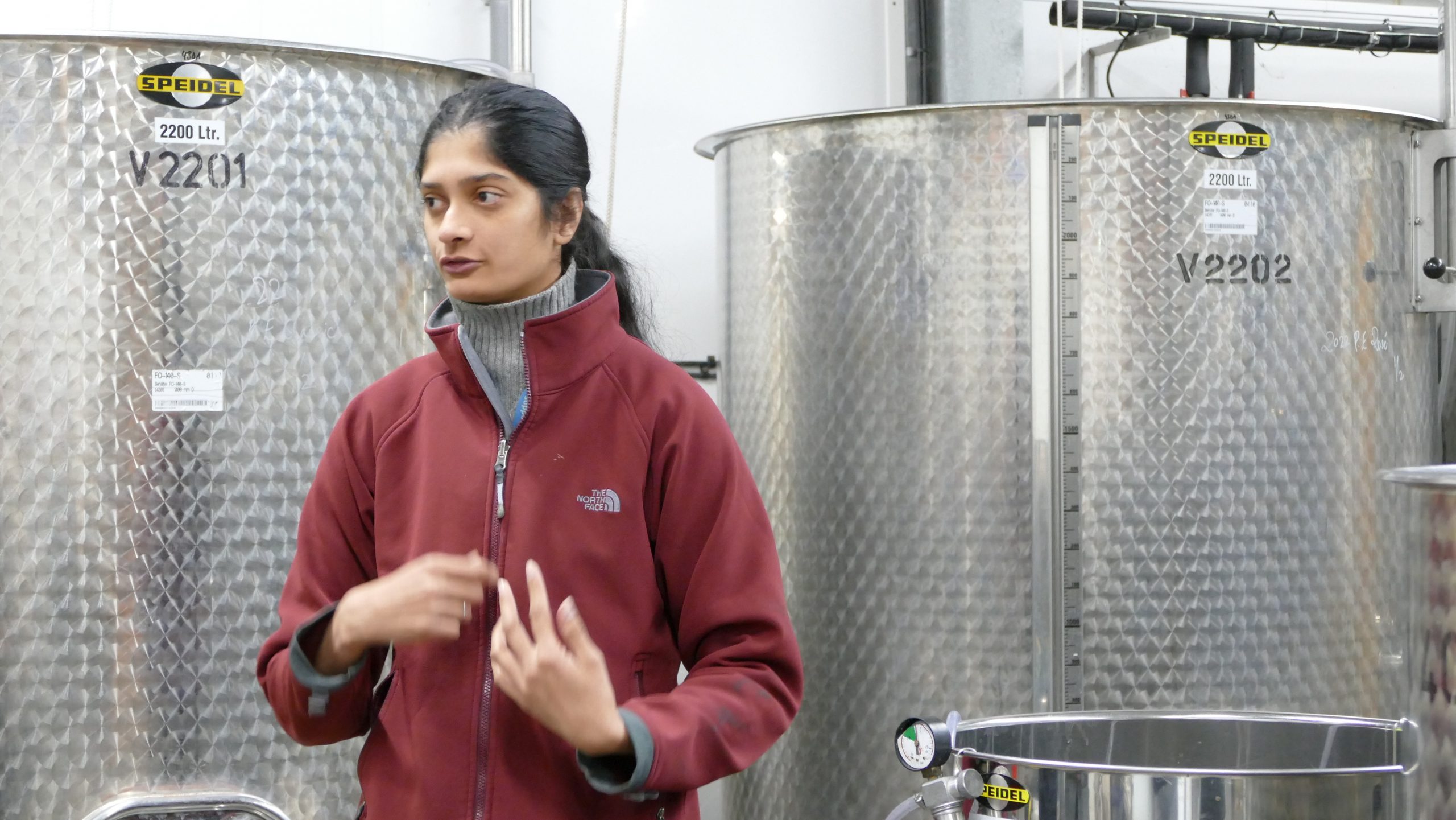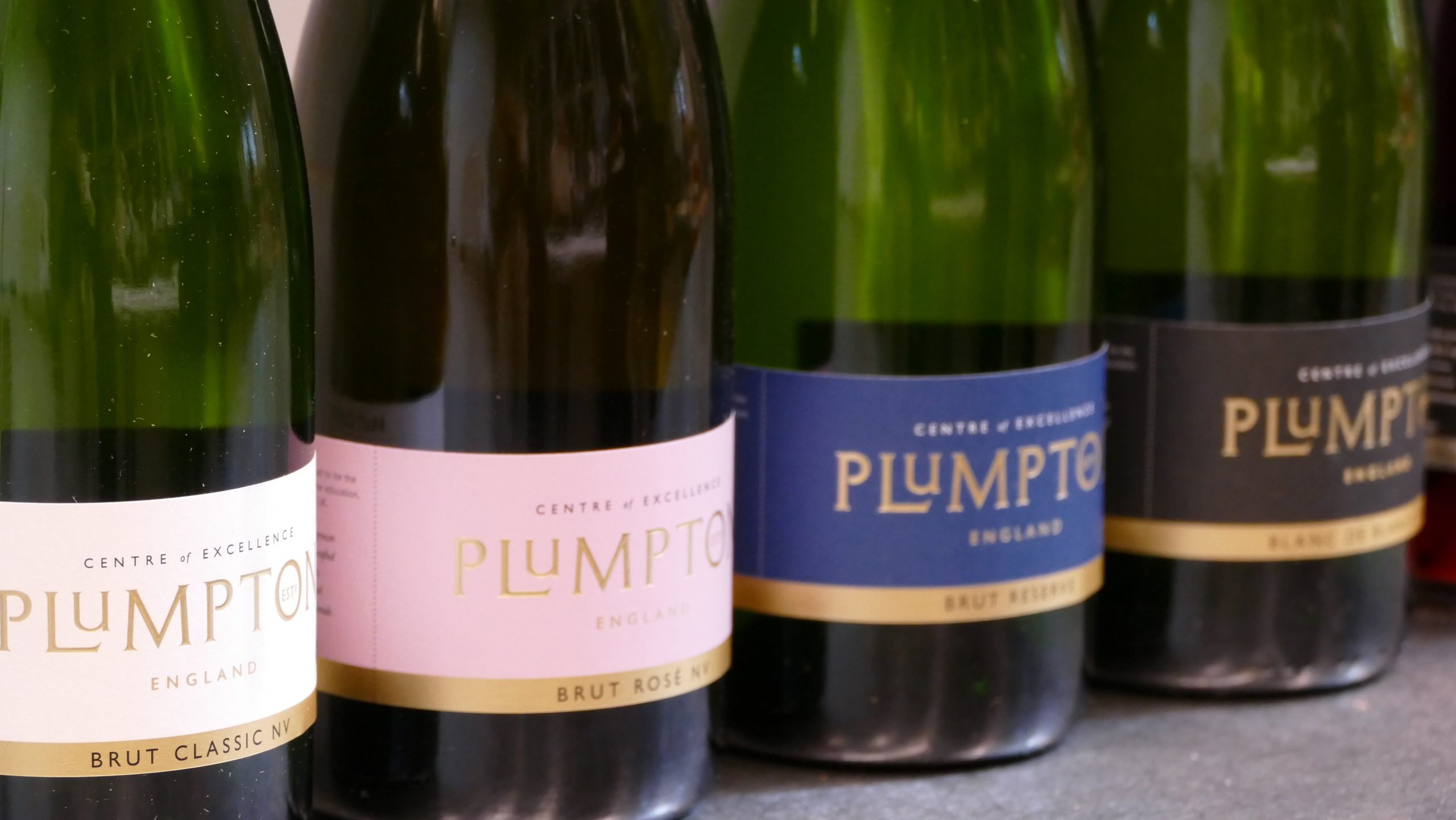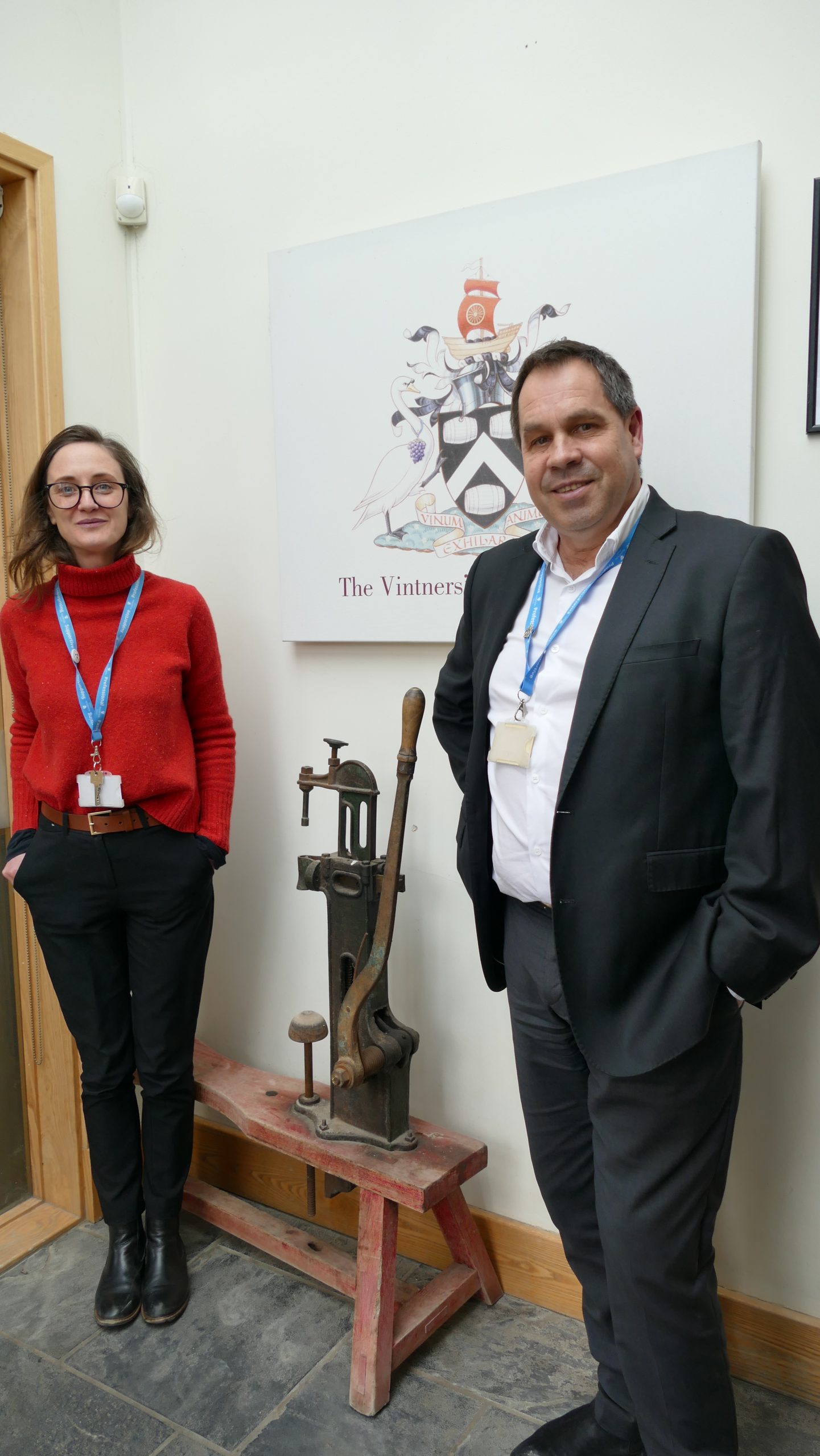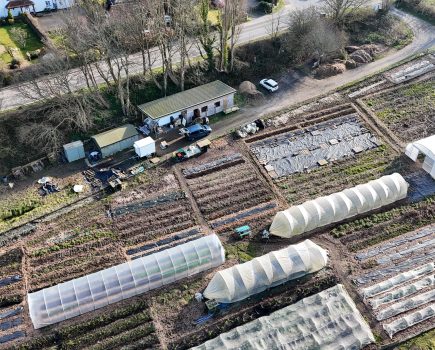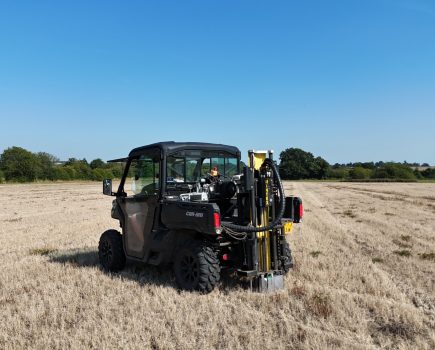Courtesy of our sister publication Vineyard Magazine we are pleased to bring you a behind-the-scenes look at the life of a student studying viticulture and wine making at Plumpton College.
It is a fact that many reading this article will be well acquainted with courses at Plumpton College, but like all things relating to wines and vines the wine division at Plumpton is determined to develop and grow. In vineyards the world over, each year there is a concerted effort to implement new procedures, techniques and technology in an attempt to improve quality, and in wineries the same can be said of the winemakers who each year seek to produce outstanding wines. It is an industry driven by self improvement and it is fitting that Plumpton College, the leading UK educational facility for wine, is following this same model.
It is usually good to start a report at the beginning, but in this instance, it was during a summary at the end of the visit that Dr Gregg Dunn, head of the wine division at Plumpton College, put into words the way in which the wine division at Plumpton is developing. “This country produces about 12 million bottles of wine a year and will max out at about 40 million bottles,” explained Dr Dunn. To contextualise this figure Australia (not the largest producer of wine in the world) makes 1.5 billion. The Australian wine industry only “supports 2.5 wine schools,” so it is important to train people from overseas and also train people not just for the UK industry but the international industry. “Plumpton is an internationally recognised provider of education and training in viticulture, oenology and wine business,” explained by Dr Dunn.
Plumpton offers students a unique opportunity. Not only do students have the ability to accumulate knowledge of both the vineyard and the science of winemaking, mixing theory and practical skills, but Plumpton is the only teaching college in the world that also has a commercial winery on site. A unique aspect to the education offered at Plumpton was mentioned by Dr Dunn. “The courses are offered in English in an English speaking country,” which gives international students the ability to learn or improve their English language skills at the same time as developing their knowledge of their chosen subject. Proximity to old world wine areas is also a positive for the college and details of student visits to Europe are often covered in Vineyard magazine. A trip to Vinitech in Bordeaux was featured in the January 2023 edition. It was a recurring theme throughout the visit to Plumpton that there are major benefits for the students through the proximity to London that the college enjoys. Not only does this provide students with the ability to attend the many trade tastings that happen throughout the year but there are other benefits too. The historical significance of London as an international centre of the wine trade dates back many centuries, with The Vintners’ Company’s first Royal Charter dating to 1363. Dr Dunn also pointed to London as the origin of the Institute of Masters of Wine. From the perspective of wine production, England and Wales are considered new areas and according to recently published figures by WineGB the number of hectares under vine increased 70% in the years 2017-2021, but this relative youth in terms of production has happened in tandem with a long connection to the trade itself.
This complex relationship and the diversity surrounding wine is reflected in the varied courses offered by the Wine Division at Plumpton, which cater to many aspects of the industry, ensuring a fresh influx of skills with each new year. Currently there are 130 Higher Education students across three main courses at Plumpton. Students applying for the MSc in Viticulture and Oenology are required to have a background in science but are not necessarily required to have taken the BSc course that is offered at Plumpton.
In the laboratory, James Clapham, laboratory manager, had set up a basic experiment to highlight how the amount of SO2 in a wine is measured. Since SO2 is fundamental to protect wine from spoilage it is a highly valuable tool for the winemaker, but James explained that “SO2 sits differently for each wine,” so understanding the chemistry is a fundamental element of the final wine. “The BSc degree offers deep understanding of how wine making actually works,” said James. This knowledge allows students “the possibility of trying something new or having the ability to fix problems should they arise,” he continued. It is clear from the simple lesson James had prepared for the journalists present that he enjoys his teaching job. “Most people who teach to degree level have their own area of interest,” James explained, and he is currently working towards his PhD, thus continuing to prove that this is an industry striving for improvement at all levels.
Outside the laboratory, teaching also takes place in a classroom with custom-designed individual booths with taps and sinks. Each of these booths is sponsored by various industry players including retailers such as Waitrose and the Co-operative along with wine associations from around the globe. Joining a lecture by Dr Akshay Baboo afforded a brief look into the principles that will enhance the students’ lifelong knowledge. “Think about your grapes year on year,” said Dr Baboo.
Although he is the programme manager and lecturer for the BSc, Dr Akshay Baboo also spent six years as a winemaker. “First and foremost I am a winemaker and I don’t want to add things I don’t need to,” he told his students; yet another reminder of the rounded education that is available to students at Plumpton Wine Division.
During the first year of the BSc in Viticulture and Oenology, students spend one day a week in the vineyard. There are two parcels of vines at Plumpton. Students experience the whole cycle of the vineyard and are provided with hands on experience working with different clones and also different training methods such as cordon training on Pinot Noir.
Spraying, pruning and tying down are all part of the students’ work in the vineyard and working in pairs they are allocated a certain number of rows to oversee. The 1.6 hectares of vines are still run as a commercial vineyard and so when it comes to harvest students are paid to come in and help gather the grapes. Tom Newham is the vineyard instructor and he spoke alongside some of the vineyard students about the benefits of studying the BSc at Plumpton. It is necessary for students wishing to work internationally to be trained to degree level but alongside the obvious gaining of knowledge and a qualification it became clear that students at Plumpton learn from each other, with some of those on the course already having significant experience including being part of multiple vintages. Alongside this peer transfer of knowledge, studying at Plumpton is an excellent way to connect with others in the industry.
The BSc is not the only route for people to train for a career in viticulture. Charles Negus, the viticulture apprenticeships programme manager, explained that the apprenticeship offers the opportunity for career progression. There is the opportunity to achieve “hands on training that is not necessarily available in a commercial setting,” said Charles. This could be because there is not enough time in a commercial setting and the apprenticeship scheme allows people to upskill. At 26 years of age, Charles has often found himself to be the youngest person in the classroom as the age demographic for the apprenticeship is generally between 17 and 50. He is quick to declare that he has found “British agricultural workers to be motivated and quick,” and the retention rate for the apprenticeship is a remarkable 95%.
During the day we met students with different objectives, some were studying in order to improve their own vineyard while others were expanding their options having already achieved a high level of knowledge through working many vintages in big commercial operations. Students from a range of different countries including Sweden, Latvia and Denmark work together in these cool climate vineyards and will disperse all over the world, taking different ideas with them, but it seems that the connections that are made between students at Plumpton last, in some cases, for a lifetime. Plumpton alumni in the wine industry automatically have a point of reference even if they now work in different countries or even on different continents.
Tom Newham spoke about the varieties that are planted at Plumpton, including the slightly unusual Acalon, a Red Vitis Vinifera grape, but it was interesting to note that there is a student-led idea of planting more PIWI varieties.
What really shone through at Plumpton was the students’ influence over their own learning experience. This continues in the winery, where Deepika Koushik is the winemaker. As an example, a sweet Ortega wine was suggested by the students and presented as an idea. That wine is now part of the library of wines that Plumpton has produced. There is also a sparkling red that is part of this library. “The second-year students are required to spend a minimum of three hours a week in the winery,” explained Deepika. Bottling is an example of how the students are prepared for various situations they may face. “Sometimes we bottle in house and sometimes we use a bottling truck,” Deepika said. Students get to experience the thousands of bottles per hour but also the “600 bottles a day” from very small-scale in-house bottling from cork and screw cap through to labelling and boxing. Plumpton students get to experience the whole production process.
Around 15,000 bottles a year are made at Plumpton. Some of that is done for other small-scale producers but “over 60% of what we produce is sparkling wine” Deepika added. “We do hand riddling and also use a gyropalette which is faster than the hand riddling but something that always happens is that when we get a bottle out and show it to the students, we say, don’t turn it up the other way, and yet the first thing they do is turn it up the other way, it always happens!” According to Dr Dunn: “Staff speak eight or nine languages” and dosage trials are done with both the students and the staff which is a good example of the inclusive nature of Plumpton.
Alongside the BSc, Plumpton also offers a foundation degree and a BA international wine business degree. These students are able to present ideas for the development of the labels for the still wines. This again shows how the wine division, while having many elements, is not divided but is instead a cohesive whole. Paul Harley is the programme manager for BA international wine business. The course trains students who then travel around the world in diverse jobs from brand ambassadors to journalists and everything in between. The course covers an array of topics including wine tourism, gender empowerment and industry innovations along with social responsibility including prohibition, Alcoholics Anonymous and schemes such as Drink Aware. From a visit to the classroom and eavesdropping on a lesson in wine tourism there is a clear level of engagement, with the students demonstrating a high amount of course preparation and pre-reading.
Plumpton Wine Division is both remarkable and unique. So many working in the UK wine industry have studied at Plumpton but with all that the wine division has already achieved Dr Dunn explained that there are more plans for the future. One new development is the National Schools Development Programme. There will be development workshops in every region in the country and this year the focus will be on “spray application such as calibration, alternative chemistry and good canopy penetration,” explained Dr Dunn. “We think this will have a major impact because one of the things that lets the industry down is the variable management of diseases across vineyards,” he added. In the laboratory there is now the ability to use high performance liquid chromatography, which measures phenolic compounds, and James Clapham is working towards techniques for measuring volatile compounds as well. There is the polymerase chain reaction device that amplifies DNA, allowing many possibilities including projects on indigenous yeast. In the vineyard there will be a state of the art under vine cultivator coming soon and plans for the winery will mean it will look a little different in the future. “There will be a rebuild which will include standardised tanks on two levels,” he continued.
In conclusion Dr Dunn used the phrase: “Plumpton students are united by wine obsession.” A sentiment that seems to travel across many continents and will endure for vintage after vintage.
- James Clapham
- Paul Harley
- Dr Akshay Baboo
- Deepika Koushik
For more like this, sign up for the FREE South East Farmer e-newsletter here and receive all the latest farming news, reviews and insight straight to your inbox.

